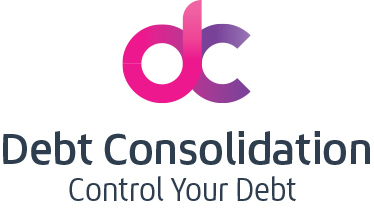Have found yourself drowning in debt? Unable to make credit or loan repayments and bills mounting? If you are struggling to find a way out of debt, you’re not alone. A recent survey shows that over three-quarters of all Australian households are in debt. If you are wanting to find a workable solution to clearing your debt, then debt negotiation may be the answer. But just what is debt negotiation?
What Is Debt Negotiation?
Debt negotiation, as the name suggests is when you attempt to negotiate the terms of your debt with your creditors. There are many potential benefits to doing this such as:
- Stopping further damage to your credit score from missed or late payments.
- Helping you avoid bankruptcy.
- Avoiding debt collectors.
- A possible reduction in the interest rate or payment amounts.
- A possible reduction in the amount owing in exchange for a one-off, lump-sum payment.
- The ability to save while still paying down your debt due to a reduction in interest/payments.
- Improvement of your quality of life, reducing stress and anxiety.

When Should You Negotiate Your Debt?
Given so many of us live with debt, and struggle with it, how do you know when you should seek to negotiate? A missed credit card payment or phone bill here or there isn’t usually going to qualify for debt negotiation. The best indicators that you should seek out debt negotiation are:
- You’re more than 90 days late making a re-payment.
- You have no feasible way to clear the debt in the near future.
- You have a growing number of repayments you cannot make to more than one lender.
90 day behind may not seem long enough to begin negotiating a debt. However, the reality is that the longer you wait, the more damage is done to your credit score.
It can also impact how successfully you are able to negotiate the debt. This is due to you potentially having multiple creditors you are now unable to pay as well as a history of missing payments. Realistically, if you cannot resume making the current repayments with regularity then you should negotiate.
Most creditors will send your debt to a third-party debt recovery service around the five-month mark of delinquency. So you should absolutely engage with them to negotiate before this time – debt collection is best avoided at all costs. So what is debt negotiation? The smart way to avoid further financial distress.
How Debt Negotiation Works
Debt negotiation can be difficult to navigate. It needs to be mutually beneficial to both you and the creditor. Ultimately, the creditor is having to agree to receiving a lesser amount than originally agreed. This is due to them agreeing to one or more of the following:
- Reduction of the debt owed
- Lowering the interest rate on the debt
- Extending the repayment period
Due to the complexities involved, it is a good idea to engage the help of a seasoned debt negotiator. Creditors want the debt repaid and would much prefer to negotiate and recoup some of their losses than end up with nothing. For older debts, creditors maybe have already earned back the cost of the initial purchase or principal, and are simply making money on the interest.
Just how well they’ll negotiate can depend on a few factors. Creditors will evaluate based on how much is owed, how consistently have you made repayments in the past and how well you put forth your case.
A debt negotiation professional understands in-depth exactly what is debt negotiation. While you should always choose one carefully, a debt negotiator can achieve very desirable outcomes for you. It is possible to approach negotiation with your creditors directly, but it is not recommended.

Debt Negotiation – Good For You And Creditors
It may seem counterintuitive for a creditor to negotiate the terms of your debt, particularly if they reduce the amount owing. However, it can work in their favour as much as yours.
Take for instance bankruptcy. Should you file for bankruptcy, your creditors will have no way to recoup their losses. By negotiating the terms with you, they are able to get some or all of the debt repaid. By not declaring bankruptcy, you are keeping your credit score protected and avoiding severe financial consequences.
Make Escaping Your Debts A Possibility
At Debt Consolidation Australia, they take a compassionate and proactive approach to your debts. They understand that the unexpected can happen to anyone – loss of a job, change in circumstances, injury etc are facts of life. The inability to service your debts doesn’t have to consume your life.
Wonder no more about ‘what is debt negotiation?’ Talk to their expert consultants today and let us help you get back in control of your debt. Whether you are facing one debt or many, they can help you consolidate and negotiate. Creating the opportunity for reasonable repayment terms and keeping your credit file free of bankruptcy and other damage.
Keep the debt collectors away from your door, call us today on 1300 795 775

